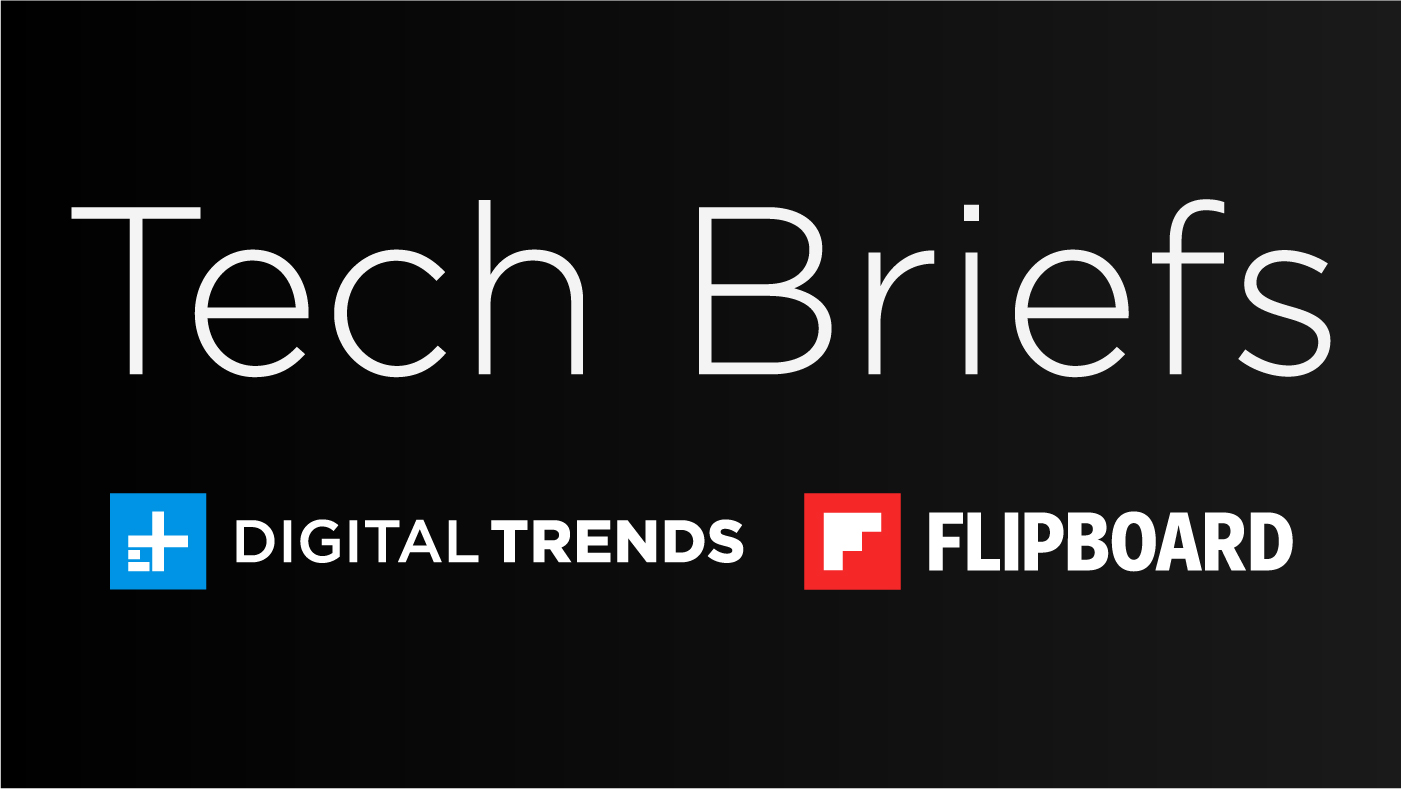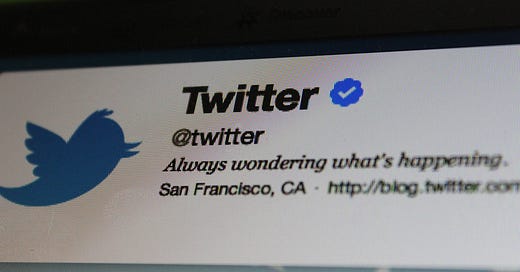Dorsey vs. Zuckerberg (Filed #004)
Twitter grows a political spine, Google buys Fitbit, and everything you want to know about HBO Max.
The Big Picture

Photo credit: @chriscorneschi/Flickr
This week has been one not too dissimilar from a fight card. In the lower card, it’s Google versus Apple in the fitness space, followed by AT&T taking on Disney, Apple, and Netflix in a fatal four-way match for video streaming supremacy. And in the main event, it’s Jack Dorsey versus Mark Zuckerberg in what appears to be a no-holds-barred tie-up. Got your popcorn ready? Let’s get it on…
Google $2.1 billion bid to rival the Apple Watch
For months, Fitbit had been on the market looking for potential buyers and on Monday Reuters revealed that the wearable technology company was talking to Google. We didn’t have to wait long for an answer since both sides on Friday announced an acquisition deal valued at approximately $2.1 billion. The move is sure to give Google a deep catalog of wearable hardware that it’ll have more control over, not too dissimilar from its Pixel smartphone line. Hopefully, the move will streamline Google’s fitness and health apps and make tracking activity easier and comprehensive instead of having to deal with a decentralized ecosystem that is Android.
Google’s Fitbit addition isn’t without concern, especially as people are wary about what the company will do with their data—notably Fitbit said in its announcement that personal data will not be monetized against (but for how long remains unclear). And can it capitalize on this asset especially after really not doing anything with the technology it got from Fossil earlier this year?
Apple has done a good job with its Watch, especially when it comes to health tracking. Not only does it do typical activity monitoring, but it also has an EKG reader and can call 9-1-1 after detecting a fall. Google has a lot of catching up to do but with a product line that has received decent attention, the company can cut out the middleman, so to speak, and produce an optimal product that could rival the Apple Watch.
The video streaming battle royale
I won’t bore you with a recap of WarnerMedia’s unveiling of HBO Max, but there’s no shortage of news. While HBO Max comes with a huge library at its disposal including those from HBO, Cartoon Network, Studio Ghibli, TBS, TNT, and J.J. Abrams’ Bad Robot studio, it’s big issue is getting those true originals—not those already-run shows—out the door and capture people’s attention. Also, it’s on the high-end of a crowded market. At $15 per month, it’s comparable to Netflix but the latter has been doing streaming for many years now and has gradually increased pricing. And let’s not forget about AT&T’s horrible branding when it comes to figuring out products: Do I use DirecTV, DirecTV Now, AT&T Now, HBO Now, HBO Go, or what?
And while some folks are going to be getting HBO Max for free, it comes with conditions and based on AT&T’s last earnings where it was losing subscribers, things may not be necessarily great for the company. But HBO Max’s launch could help sway people back to be paying customers.
» The Full Story: Everything About HBO Max (Flipboard)
The market also saw its first casualty, that being from Sony’s PlayStation Vue. Citing a “highly competitive” market, Sony bowed out especially since it didn’t have that many subscribers—reportedly it had 500,000 paying customers. It also lacked original content, unlike YouTube TV which included shows like Cobra Kai. The price tag of $50 per month was also certainly much especially since you could only watch it on PlayStation devices.
Apple also launched its TV streaming service, though shows have been panned by critics, including the high-budget Jennifer Aniston, Steve Carrell, and Reese Witherspoon series “The Morning Show”.
And get ready for Disney’s streaming service debut to come in a couple of weeks, not to mention NBC’s Peacock service which reportedly may be free to watch even if you don’t have a Comcast subscription.
The Main Event: Dorsey versus Zuckerberg
A battle between two of Silicon Valley’s tech leaders is on the rise and there’s certainly no love lost. The main issue right now is how tech companies are dealing with political ads. Both Dorsey and Zuckerberg have taken different approaches with the former’s company announcing it’s banning such advertising starting this month while the latter thinks doing so and fact-checking politicians, would favor the incumbent and those decided by the media.
» The Full Story: Navigating Political Ads (Flipboard)
Certainly, the issue is a hot-button issue in tech, especially as people are wondering whether the problem lies within the ad buyer or the distribution mechanism that helps spread lies like wildfire before anyone has a chance to react. And political ads don’t really amount to anything to either company’s bottom line, approximately 0.5 percent so it can’t be a revenue thing, can it? It’s all about what definition of free speech you subscribe to, I guess. And could this differentiation cause tech companies to be divided even more and cause a deepening rift that would allow for the spread of misinformation and malicious activities to flourish unchecked?
P.S.: I’d appreciate it if you added this Filed email address to your address book so it doesn’t get blacklisted or labeled as “spam” accidentally. Thanks!
Want More Tech News?
If you’re looking for more up-to-date news about tech, check out my Flipboard magazine “FYI”. You can also follow my magazine “The Long Sunday Read” for great long-form articles about the tech industry. Both magazines are updated regularly.
Tech Briefs

Every week, Digital Trends and Flipboard produce a segment called “Tech Briefs” where we cover the week’s top tech news in 10 minutes (or so). It’s also available as an audio-only podcast so please subscribe to it in your favorite app (Spotify, Google Play, Apple Podcast, Stitcher, and Soundcloud) because we oftentimes put together some exclusive episodes!
On the agenda in this episode: the changing streaming TV landscape thanks to the introduction of HBO Max, Apple TV+, and the shuttering of Sony’s Playstation Vue. Plus, the surprise announcement of premium Apple Airpods Pro and what does Google want with Fitbit?
» To see more episodes of “Tech Briefs,” subscribe to my YouTube channel.
10 Must-Read Articles

I Accidentally Uncovered a Nationwide Scam on Airbnb
Allie Conti, Vice
While searching for the person who grifted me in Chicago, I discovered just how easy it is for users of the short-term rental platform to get exploited.
Silicon Valley should take Josh Hawley’s big war on big tech seriously
Emily Stewart, Recode
Tech companies have come under fire from many lawmakers including Massachusetts Senator and 2020 presidential candidate Elizabeth Warren. Recode looks at efforts by Missouri Senator Josh Hawley to legislate Silicon Valley and question company executives about alleged social media bias, data monetization and tracking, children’s online privacy, tech addiction, and more.
Elephants Under Attack Have An Unlikely Ally: Artificial Intelligence
Dina Temple-Raston, NPR
Peter Wrege is a researcher investigating how many elephants there are in Africa and how many are being killed. He’s using a subset of AI called neural networks to analyze sound collected by 50 recorders placed throughout the Central African rainforest and extrapolate the sounds of elephants over other noises. From there, the AI can determine the likelihood of whether or not the pattern pieced together is an elephant. Wrege isn’t alone in using AI as a means of helping save the pachyderms.
TikTok is changing music as you know it
Nicole Kobie, GQ Magazine UK
TikTok has helped artists find listeners and make their songs suitable for memes. Experts say that it’s also changed the industry when it comes to who benefits from royalties—it’s now a songwriter/publisher’s market. But some also warn about TikTok’s use, especially being owned by a Chinese company risks the dangers of surveillance and uncertainty about who’s processing the data.
Silicon Valley’s Demo Day Is Racist and Sexist
Tiffani Ashley Bell, Marker by Medium
In an ideal world, a founder would use their time on stage to sell investors on a vision: one where their startup nearly monopolizes a market and moves humanity forward, all while making a ton of money for everyone involved, and that’s all investors would focus on. But the sheer pageantry of it all encourages snap judgments of everything from ethnicity and gender expression to educational pedigree. Whether unconscious or not, the process is rife with discrimination and bias.
School apps track students from the classroom to bathroom, and parents are struggling to keep up
Heather Kelly, The Washington Post
Schools have become high-tech, using computers to help students learn, but it comes at a cost to privacy. The Washington Post looks at a Virginia high school using the e-Hallpass software that tracks a student’s whereabouts, whether it’s the bathroom, classroom, principal’s office, or somewhere else on campus. Do the benefits of education technology outweigh sacrificing a child’s privacy?
1.5 Million Packages a Day: The Internet Brings Chaos to N.Y. Streets
Matthew Haag and Winnie Hu, The New York Times
The most populated city in America faces clogged streets not by more cars, but as a result of convenience. Ordering online, especially from Amazon, has resulted in millions of packages being delivered to homes and businesses, and the building of storage infrastructure around the Big Apple.
The average number of daily deliveries to households in New York City tripled to more than 1.1 million shipments from 2009 to 2017, the latest year for which data was available, according to the Rensselaer Polytechnic Institute Center of Excellence for Sustainable Urban Freight Systems.
A Cybersecurity Firm’s Sharp Rise and Stunning Collapse
Raffi Khatchadourian, The New Yorker
Tiversa dominated an emerging online market—before it was accused of fraud, extortion, and manipulating the federal government.
A Deep Look Into the iPhone's New Deep Fusion Feature
Adam Clark Estes, Gizmodo
The first thing you need to know about Deep Fusion is that Apple is very proud of it. The company devoted several minutes to a preview of the feature at its September event, where it touted Deep Fusion as “the first time a neural engine is responsible for generating the output image.” In practice, this involves the iPhone taking nine total photographs, and then the neural engine in the new ultra-powerful A13 Bionic chip essentially pulls out the best pixels in each image and reassembles a photo with more detail and less noise than you’d get from an iPhone without Deep Fusion.
The Ransomware Superhero of Normal, Illinois
Renee Dudley, ProPublica
Thanks to Michael Gillespie, an obscure programmer at a Nerds on Call repair store, hundreds of thousands of ransomware victims have recovered their files for free.
That’s all there is!
Thanks for not only subscribing but reading my newsletter. I hope you found it both enjoyable and informative. I encourage you to check out my Flipboard magazines and follow me on Twitter, Facebook, and LinkedIn. And please send me your feedback: how can I do better? Worse? Things you’d like to see featured?
If there are articles you think I might be interested in and should add to a future issue of Filed, please send it to me! I love to discover great content!
I’m off to scour the internet for more news…check your inbox next week for another issue of Filed. Share this with your friends and family and if they like it, encourage them to sign up at filed.news!




